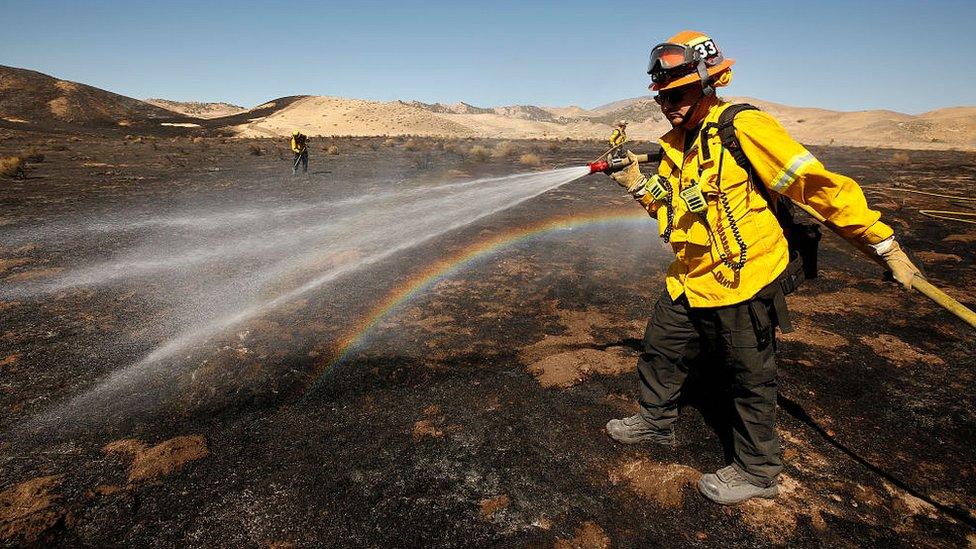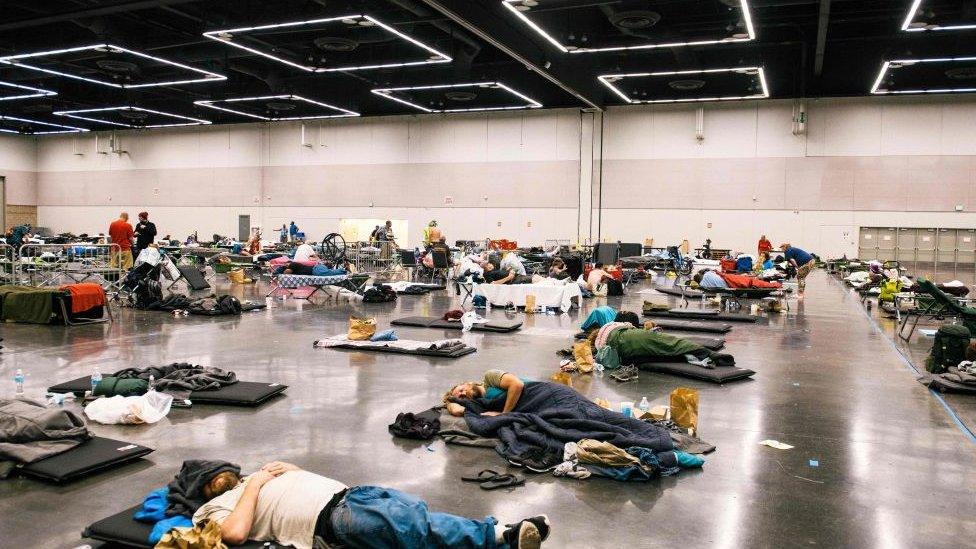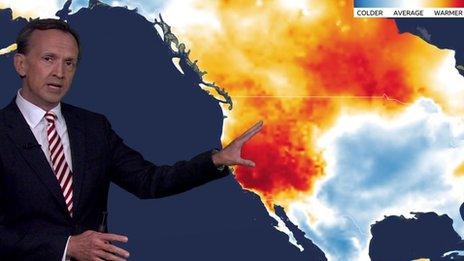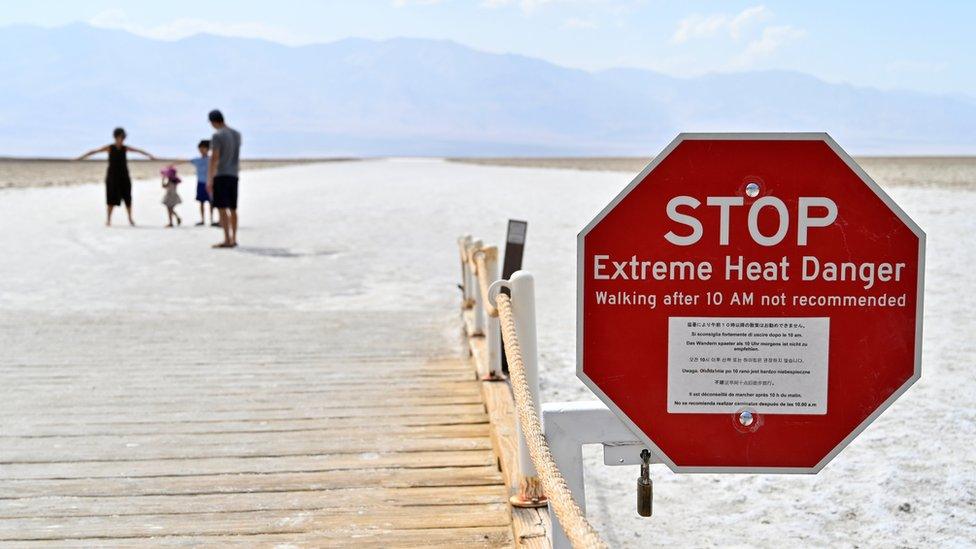US heatwave: California and Nevada brace for record-breaking temperatures
- Published
Extreme heat builds again in North America
Extreme heat is building in the western United States, with forecasts of record-breaking temperatures in the states of California and Nevada.
It comes just weeks after another dangerous heatwave hit North America, and the region has experienced the hottest June on record.
California's Death Valley on Friday recorded a high of 54.4C (130F), with similar heat expected this weekend.
Millions of people in the US are under warnings of excessive heat.
The National Weather Service has advised those affected to drink plenty of water and stay in air conditioned buildings.
The temperature in Death Valley on Friday matched one recorded in August 2020 - which some argue is the highest temperature ever reliably recorded on Earth. A temperature of 56.7C (134F) was recorded in 1913, but this is contested by climate experts.
Firefighters battling the many wildfires in the region say the air is so dry that much of the water dropped by aircraft to quell the flames evaporates before it reaches the ground.
In the north of Nevada, near the border with California, people were evacuated from their homes as wildfires triggered by lightning strikes tore through parts of the Sierra Nevada forest region.
Forecasters say Las Vegas's record of 47.2C (117F) could also be passed.
In Oregon, more evacuation orders were issued when a wildfire fanned by strong winds in the Fremont-Winema National Forest grew from nearly 26 sq miles (67 sq km) on Thursday to nearly 61 sq miles on Friday.

The heatwave has left huge areas of California bone-dry and prone to wildfires

A cooling centre was set up at the Oregon Convention Center in Portland to help people affected by the heatwave
The fire was threatening power cables that send electricity to California. Power grid operators in California have urged customers to conserve electricity by reducing their use of appliances and to keep thermostats higher during the evening when solar energy is diminished or no longer available.
In Idaho, Governor Brad Little declared a wildfire emergency and mobilised the state's National Guard to help fight fires also sparked by lightning.
Canada is also bracing for extreme heat, though it is not expected to approach the temperatures seen at the end of last month when the village Lytton in British Columbia reached 49.6C (121F), breaking the country's highest recorded temperature.
The heatwave saw spikes in sudden deaths and increases in hospital visits for heat-related illnesses.
Experts say that climate change is expected to increase the frequency of extreme weather events, such as heatwaves. But linking any single event to global warming is complicated.
A study by climate researchers said the heat that scorched western Canada and the US at the end of June was "virtually impossible" without climate change.
Related topics
- Attribution
- Published10 July 2021

- Published19 August 2020

